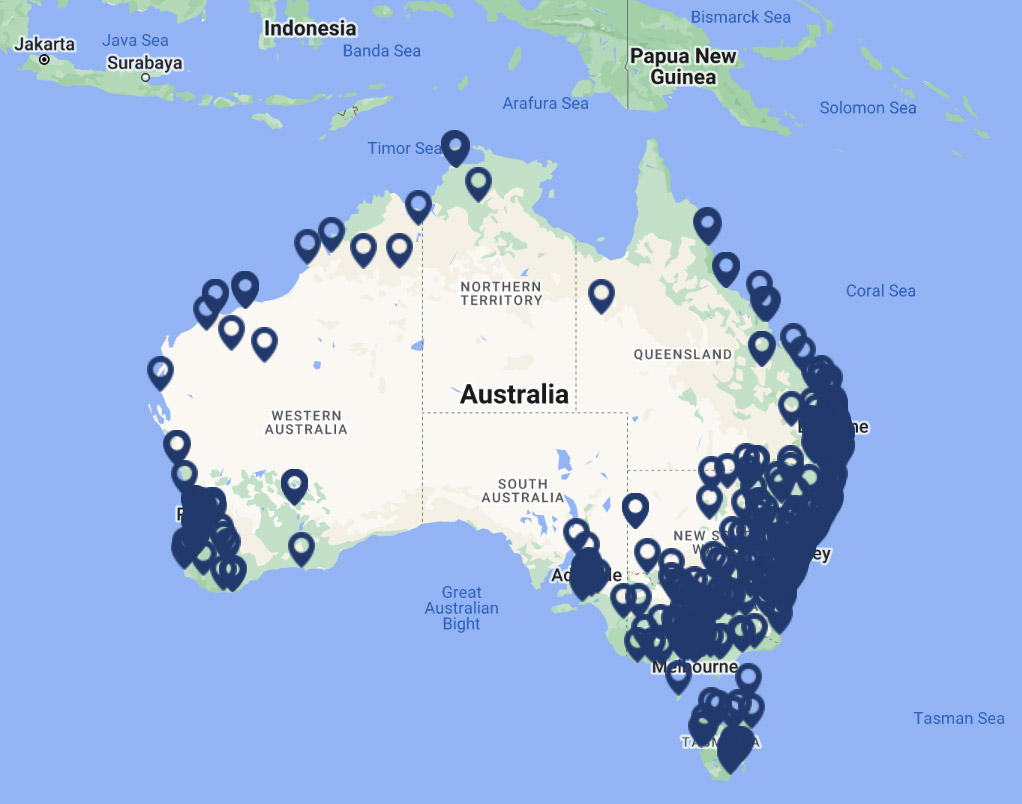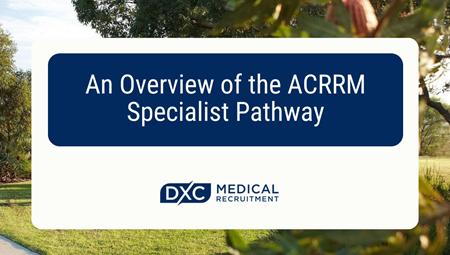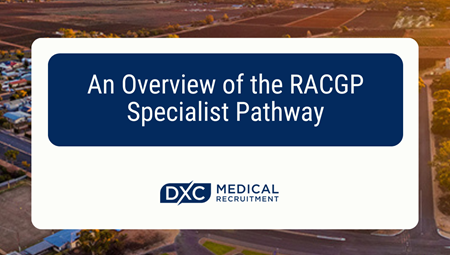Since launching in 2023, the RACGP’s Fellowship Support Program (FSP) has become one of the most accessible and structured 3GA training programs available to non-VR GPs seeking Fellowship of the RACGP (FRACGP). With several intakes now complete and additional support mechanisms in place, it's a great time to revisit the key aspects of the program, and to understand the important changes coming from 2026 onwards.
Key Changes and Timeline (2026–2027)
The RACGP has announced a series of improvements to the Fellowship Support Program that will be introduced progressively across upcoming intakes.
From 2026.1
- Training can commence only at accredited sites with accredited supervisors.
- Current FSP registrars who change practice site or supervisor must ensure both meet the RACGP Standards for General Practice Training.
- All other program requirements remain unchanged for this intake.
From 2026.2
- All applicants must complete the National Entry Assessment (NEA).
This supports a consistent, fair and transparent national selection process.
From 2027.1 – Introduction of an Uplifted Program Structure
The FSP will move to a strengthened structure with key enhancements, including:
- 2–2.5 year full-time equivalent (FTE) training requirement
- A minimum of two years’ clinical experience (in any country) to be eligible
- A competency-based model with both standard and advanced entry points
- Enhanced education and support, including:
- Small-group learning
- Expanded workplace-based assessments (WBAs)
- A face-to-face introductory workshop
- Updated program fees to reflect the improved structure and support
What Will Continue Unchanged
The FSP will continue to offer:
- Training in accredited rural, regional and remote general practices (MM2–7)
- Guidance from accredited supervisors
- A structured pathway to Fellowship for doctors with limited or provisional registration
- Flexibility for self-directed learners with ongoing assessment and feedback
- Out-of-practice education and mentoring from experienced medical educators
Further details, including what’s not changing, are available on the official FSP webpage.
A Brief History
The FSP was introduced following the discontinuation of Commonwealth Government funding for the Practice Experience Program (PEP) in June 2023.
It is now the RACGP’s primary education and training pathway for non-VR doctors not enrolled in AGPT or RVTS.
Program Structure
The FSP consists of two components:
1. Education and Training (2 years)
Delivered over four terms:
-
- Basic General Practice Term – 6 months
- Core General Practice Term – 6 months
- Two Advanced General Practice Terms – 12 months total
2. Post-Education
This is where GPs sit their Fellowship exams (AKT, KFP and OSCE/CCE).
GPs have six terms (3 years) to pass all exams, with a further six months allowed for Fellowship to be conferred.
FSP Applications and Entry
Applications open twice a year, typically in January and July, for commencement six months later.
Applicants must submit:
- A letter of support from each practice site
- Nominated supervisor details
- A proposed supervision model
Successful applicants receive:
- A Training Program Agreement
- An invoice for the first term
- An FSP-specific Medicare provider number application
How Much Does the Program Cost?
The program is self-funded.
- Total cost: $33.680 + RACGP membership fees (2026 fees)
- Fees are payable across four terms (eight quarters)
While this is a significant investment, it is offset by access to the VR/A1 Medicare rebate schedule, which is around 20% higher than A7 rates.
Doctors remain eligible for A1 rates for the duration of the program and until Fellowship is awarded.
A complete breakdown of the costs can be viewed HERE.
What Locations Are Eligible for the Fellowship Support Program?
- FSP is available in MMM2–MMM7 locations.
- MMM1 placements are only approved in extenuating circumstances.
Use the Health Workforce Locator (select MMM 2019 + DPA for GPs) to confirm eligibility.
If you're subject to 19AB, you must continue to meet your DPA obligations throughout the program.
Does My Practice Have to Be Accredited?
Your FSP placement site must be accredited under:
- RACGP Standards for General Practice (5th edition)
- RACGP Standards for General Practice Training
If your practice currently meets the first standard but not the second, RACGP will provide support to achieve the training accreditation.
What Are My Supervision and Support Requirements?
Supervision is a core requirement of FSP, regardless of registration status.
Supervisor Criteria:
- Must hold FRACGP or FACRRM
- Ideally AGPT-accredited (or will become accredited with RACGP support in Year 1)
- Must be onsite unless otherwise approved
Supervisor Commitments:
- Term 1–2: 1 hour of in-practice education per fortnight
- Term 3–4: 1 hour per month
- Participation in Workplace-Based Assessments (WBAs)
Supervisors receive a monthly financial incentive, processed by RACGP in arrears.
Additional Support for Registrars
- Access to a Medical Educator
- Guidance from a Program Training Coordinator (PTC)
These roles help steer your learning, assessments, and exam readiness.
What Assessments Will There Be?
Registrars will complete:
- EASL (Early Assessment for Safety and Learning) within the first fortnight
- WBAs throughout the program, including:
- Mini-CEX
- Direct observation
- Case analysis
- Patient/peer feedback
- Supervisor reports
In Conclusion
The FSP has evolved into a supportive, structured and reputable pathway for non-VR doctors.
It continues to offer:
- Less restrictive eligibility
- Strong educational and supervisory support
- The ability to train while accessing A1 MBS rates
Understanding the updated requirements and upcoming changes is essential for both doctors and practices preparing for the next intakes.
Need Help?
At DXC Medical, we specialise in supporting non-VR GPs and clinics in MMM2–MMM7 locations. Whether you’re a doctor navigating the program or a clinic preparing to host one, we can help ensure everything is aligned for FSP success.
For more information on anything covered in this blog, please contact:
Shayla Owusu
0432 232 598
shayla.owusu@dxcmedical.com.au
To view the latest RACGP FSP GP Jobs listed with DXC Medical, please click HERE
LINKS
Health Workforce Locator - https://www.health.gov.au/resources/apps-and-tools/health-workforce-locator
RACGP Standards (5th edition) - https://www.racgp.org.au/running-a-practice/practice-standards/standards-5th-edition
RACGP Standards for Training - https://www.racgp.org.au/education/education-providers/regional-training/standards-for-general-practice
FSP costs - https://www.racgp.org.au/education/imgs/fellowship-pathways/fellowship-programs-for-imgs/fellowship-support-program/fellowship-support-program-fees
DXC Jobs - https://www.dxcmedical.com.au/


